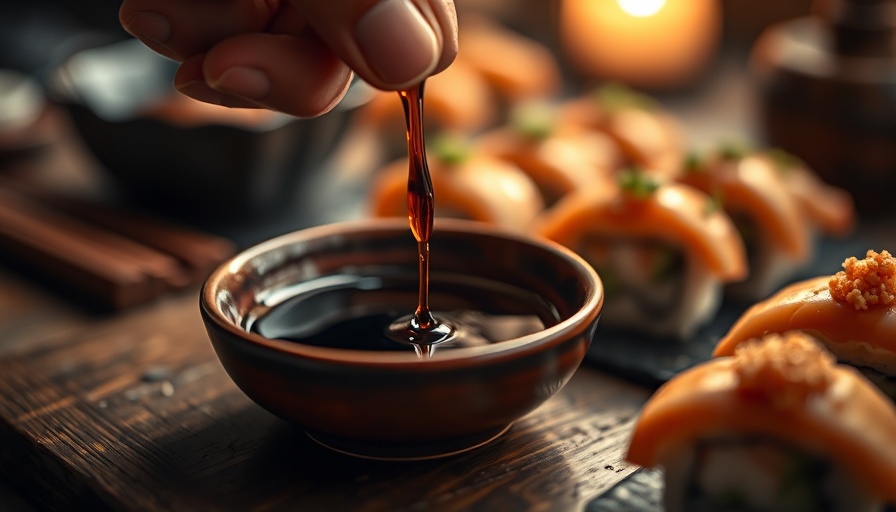
Unlocking Culinary Flavor: The Importance of Soy Sauce
Soy sauce is more than just a condiment; it's a rich source of umami that can significantly enhance the flavor profile of a dish. For concierge medical practice owners, understanding the nuances of healthy cooking — including the role of soy sauce — can lead to improved patient relationships by promoting nutrition literacy. With many clients increasingly interested in wellness as a holistic approach to health, exploring such condiments can help medical professionals engage in meaningful conversations about dietary choices with their patients.
Exploring Soy Sauce Varieties: What’s Your Best Choice?
Not all soy sauces are created equal. With various types—ranging from tamari to dark soy sauce—the choice can be overwhelming. Each variety offers distinct flavors and components, catering to diverse culinary preferences. For instance, tamari, often gluten-free, tends to have a richer and less salty taste, making it ideal for marinades and dipping sauces. This knowledge can be pivotal for health-minded individuals who seek to balance flavor with their dietary goals.
The Health Aspects: Sodium Content and Its Implications
As much as soy sauce can elevate the taste of a dish, it is crucial to be aware of its sodium content, which is substantially higher than that of many other condiments. For individuals with salt sensitivity, alternatives like low-sodium soy sauces could provide the perfect solution while still offering the rich flavors they desire. Conversations around sodium intake and its effects are essential for concierge practices, as patients often look for guidance in managing their dietary health.
Flavor Innovation: The Best Brands to Try
When it comes to selecting soy sauce, several brands have emerged as favorites from consumers. Notably, San-J's tamari offers an authentic taste while being vegan and gluten-free, making it appealing across many dietary preferences. Lee Kum Kee’s dark soy sauce is renowned for its robust flavor, ideal for marinating meats. Meanwhile, Kikkoman provides an accessible option that has become a staple in many households. Recommendations such as these can help concierge practices foster patient engagement by sharing useful and practical culinary tips.
Culinary Legacy and Cultural Significance
The roots of soy sauce stem from ancient Asian culinary traditions, showcasing a history steeped in flavor and family cooking practices. This background can be an interesting topic of discussion not only for health enthusiasts but also for those who appreciate cultural cuisines. By integrating these conversations into patient consultations, medical practices can highlight the importance of understanding one’s food and its cultural significance, fostering a deeper connection with food among patients.
Navigating Dietary Preferences: Soy Sauce for Everyone
With the growing trend toward personalized nutrition, soy sauce manufacturers have adapted to offer options that cater to all diets. Whether it’s organic tamari for the gluten-sensitive or dark soy sauce for those seeking intensity, the variety promotes inclusivity in cooking. Acknowledging these different preferences can enhance the expertise concierge medical practices provide when advising on food and nutrition.
In summary, soy sauce is more than just a savory addition to dishes; it is a nuance of culinary art, steeped in history and health implications. For concierge medical practice owners, leveraging this knowledge can enrich patient dialogues, encouraging a broader conversation around nutrition, wellness, and food-related cultural appreciation.
 Add Row
Add Row  Add
Add 






Write A Comment